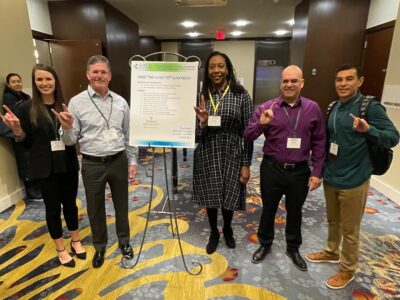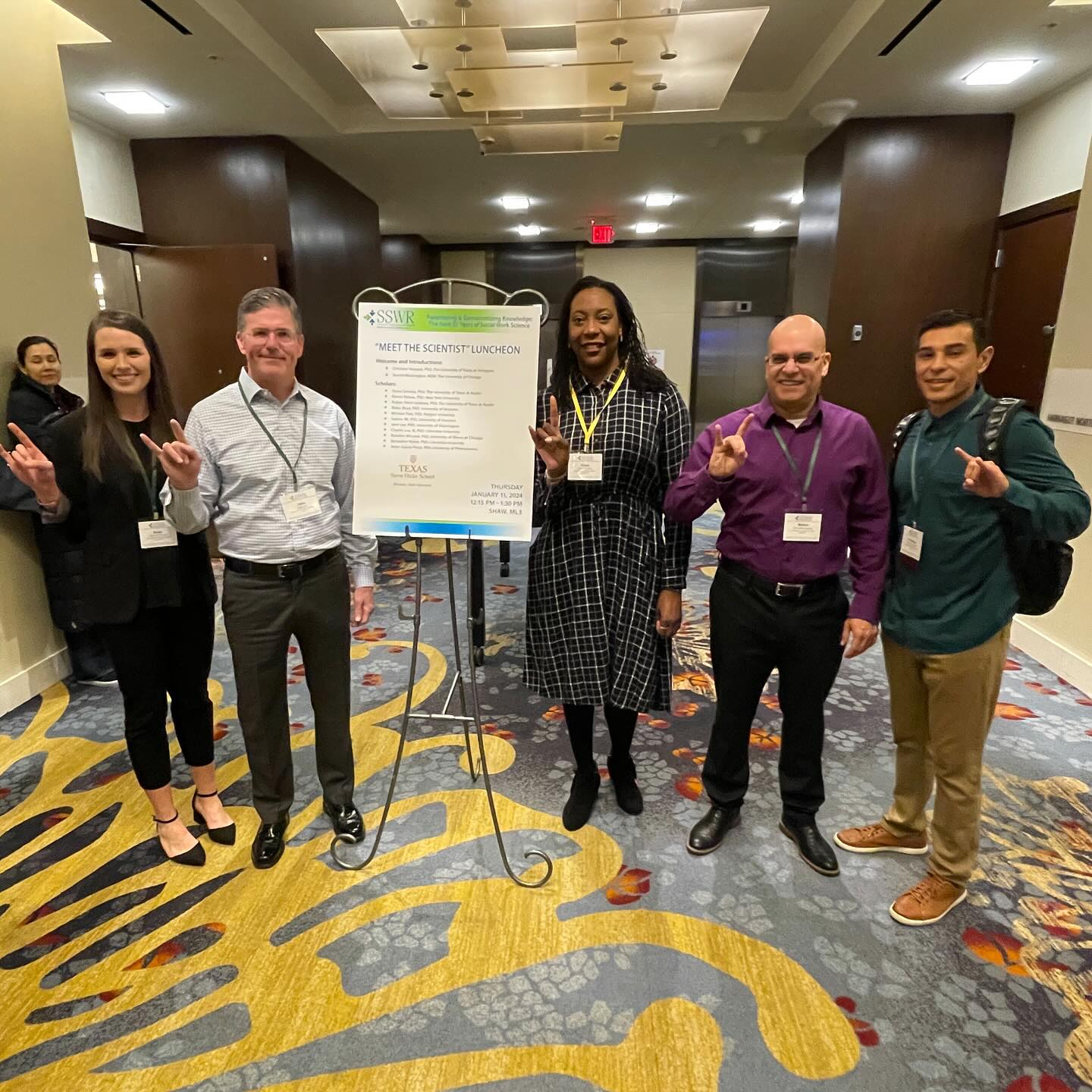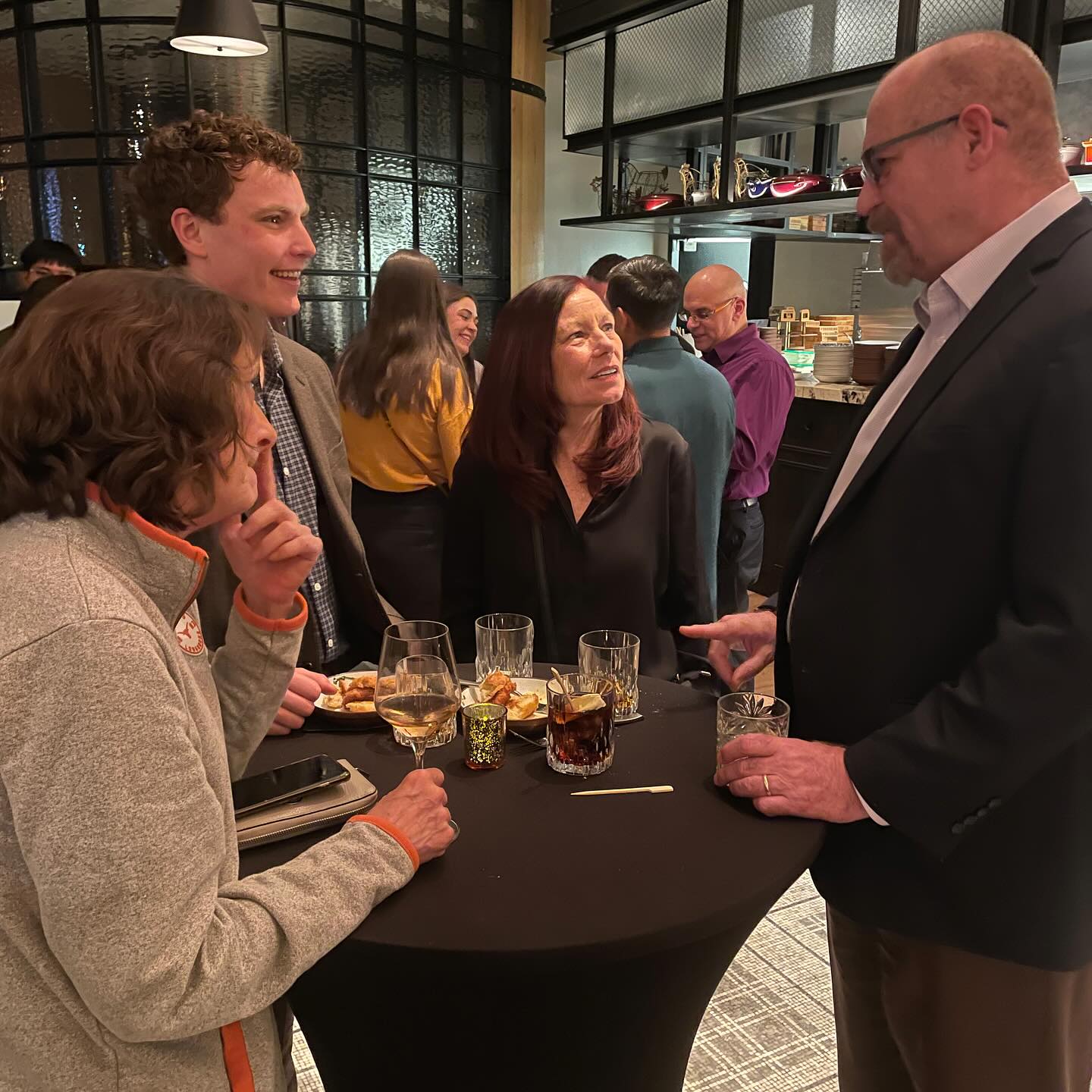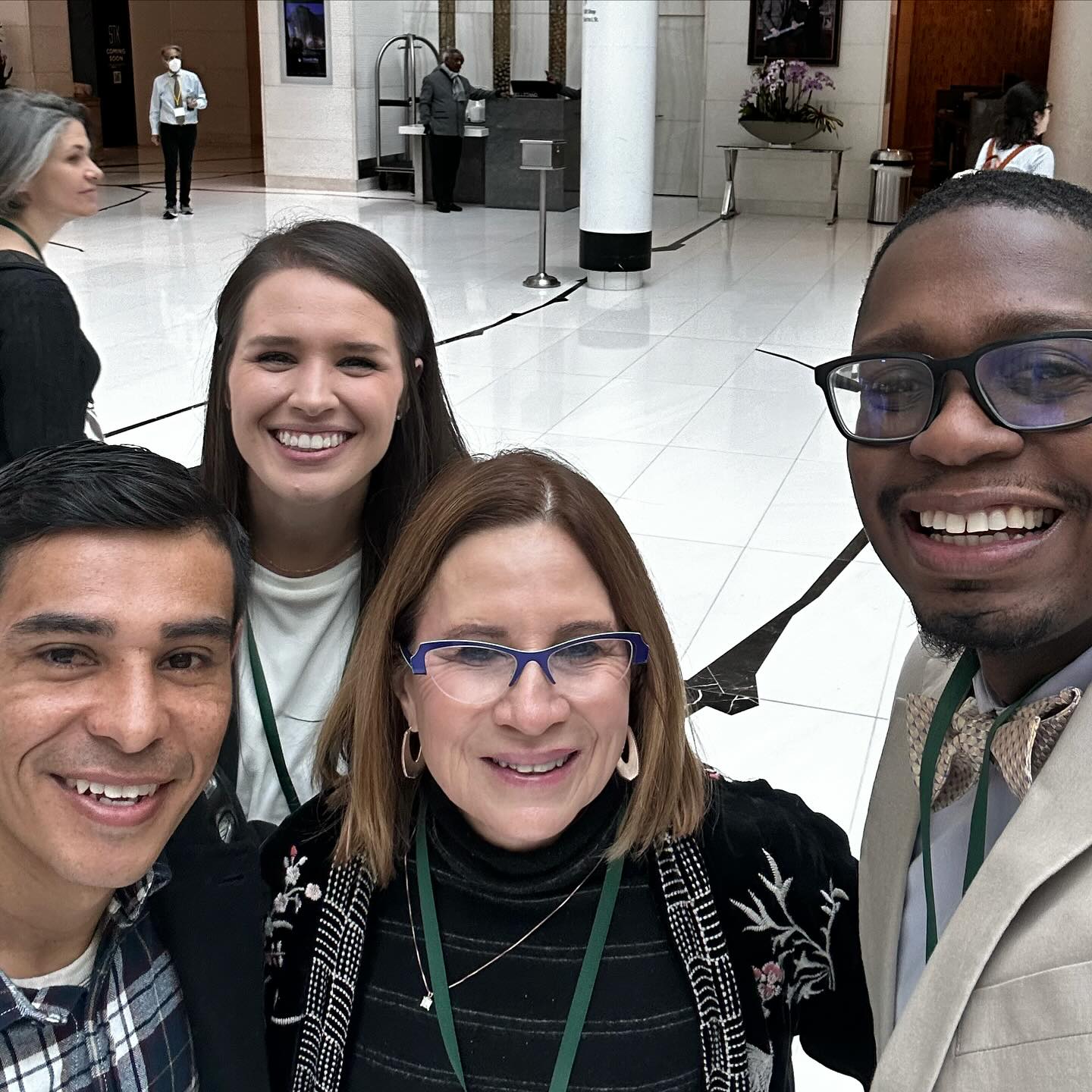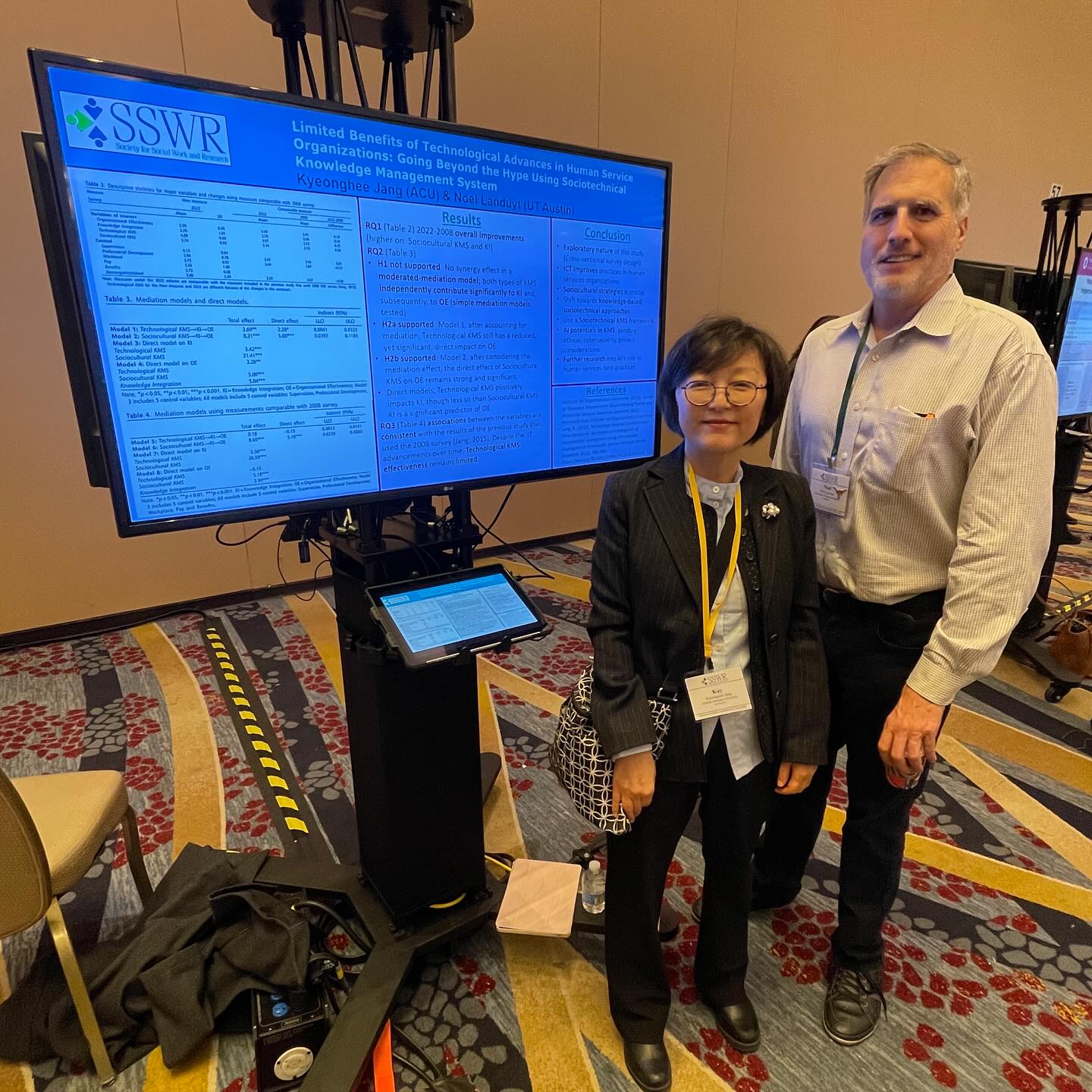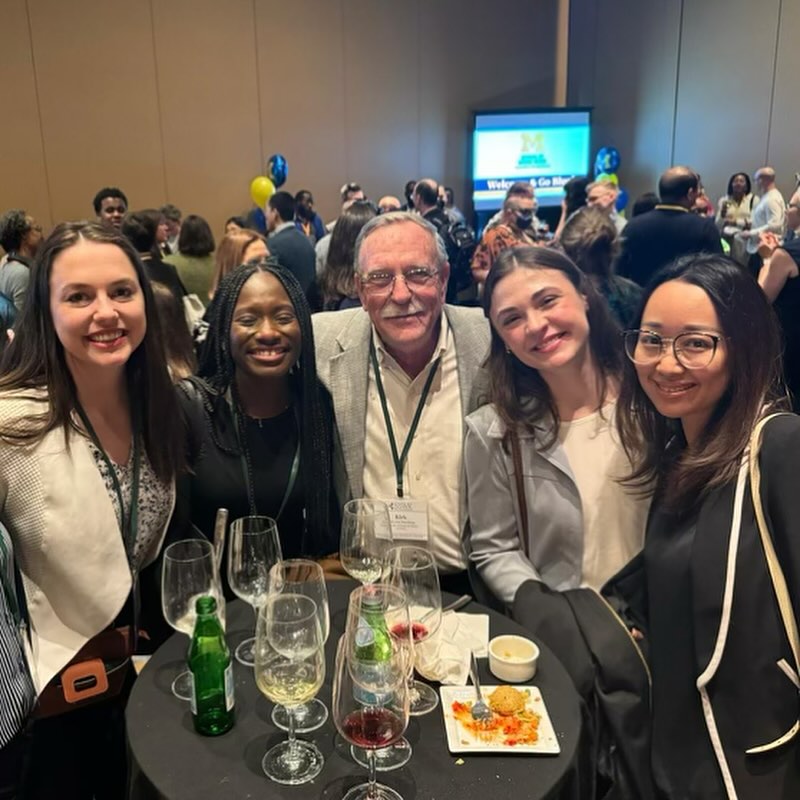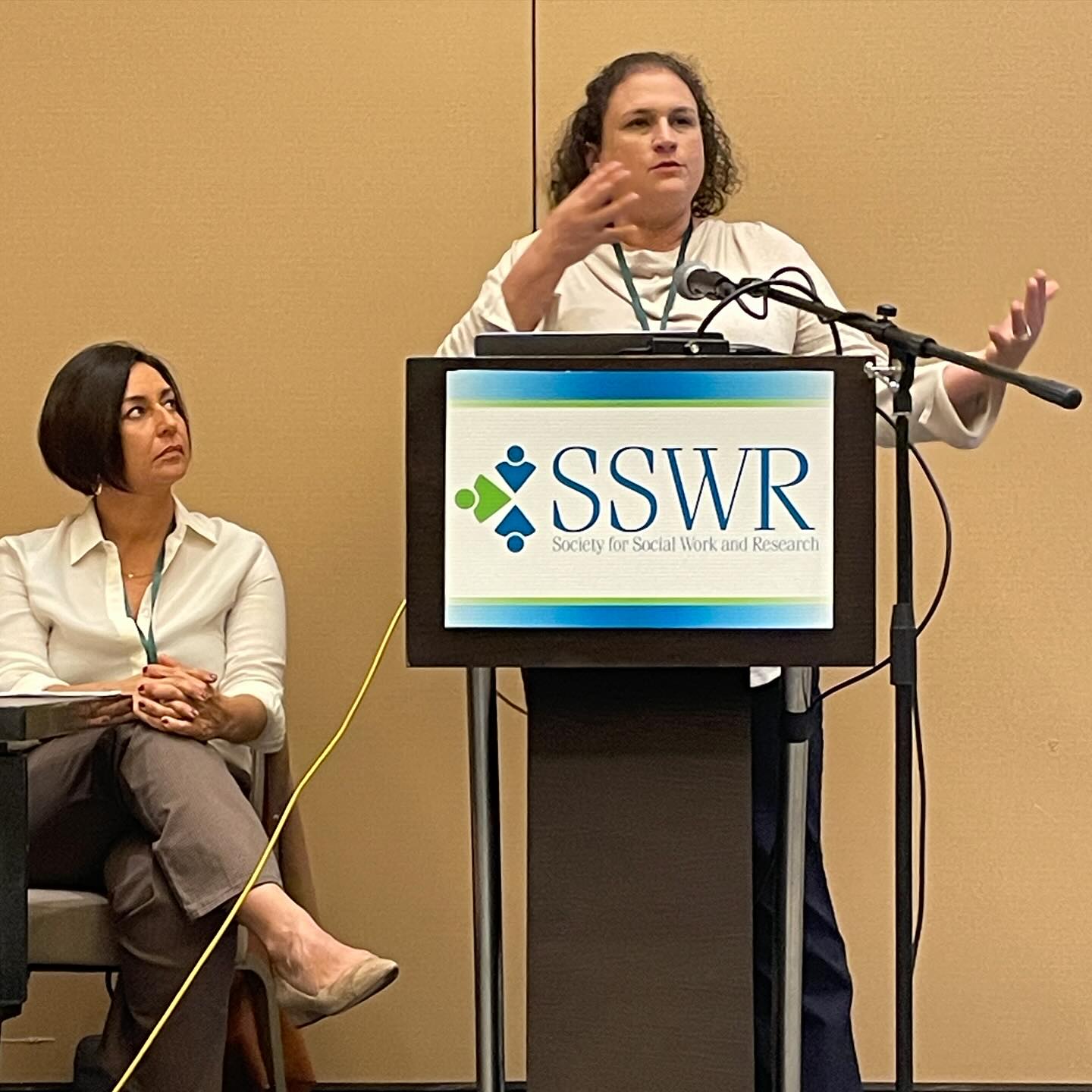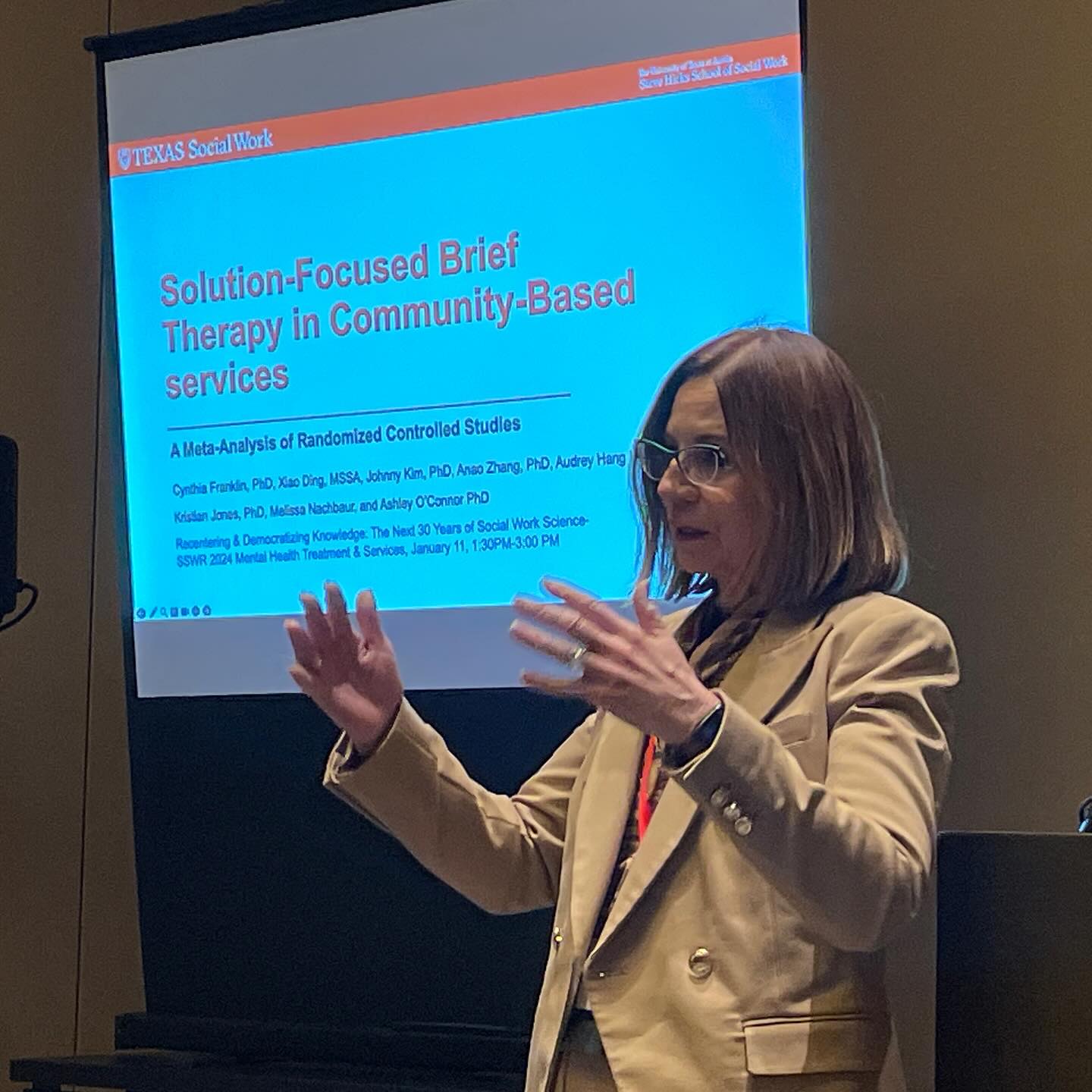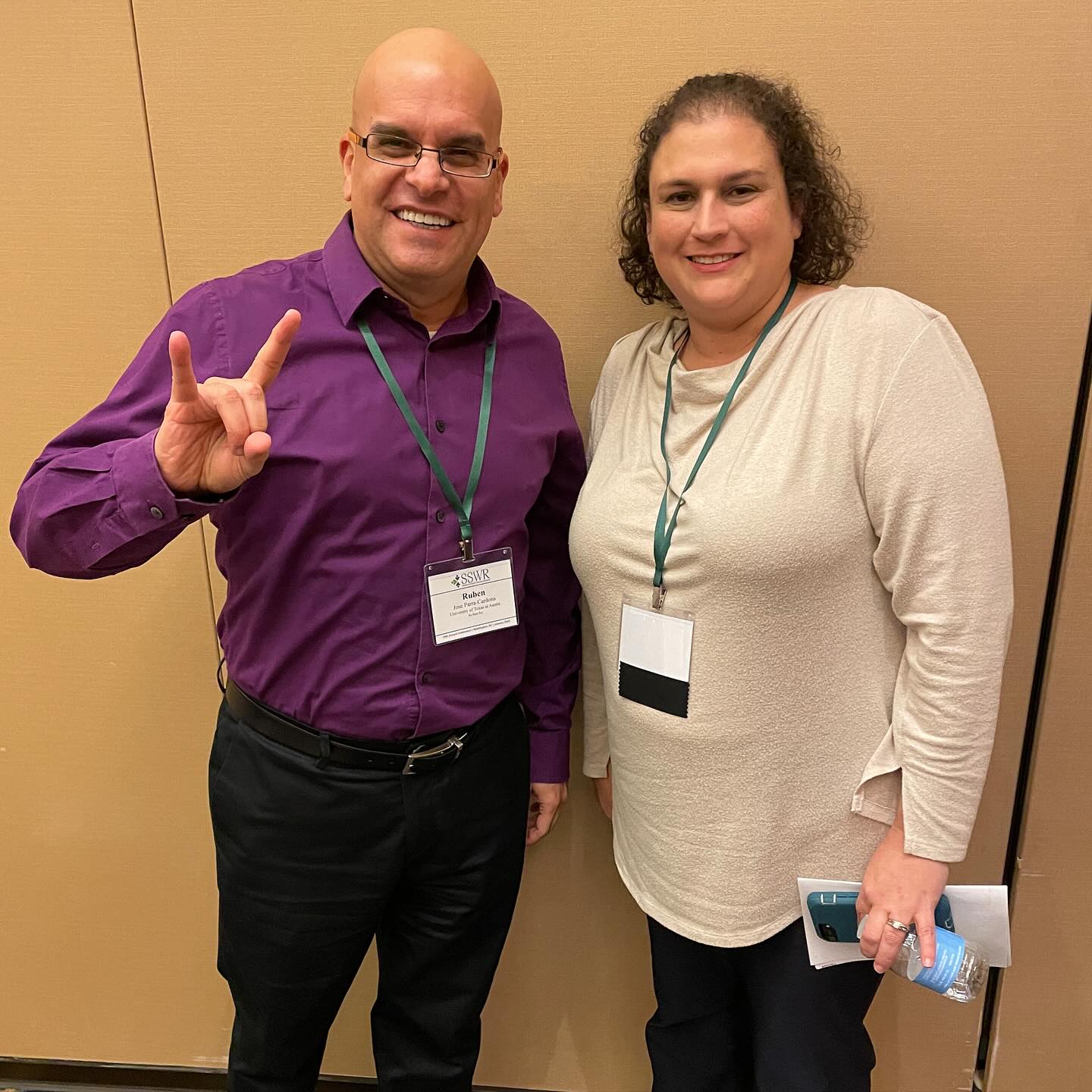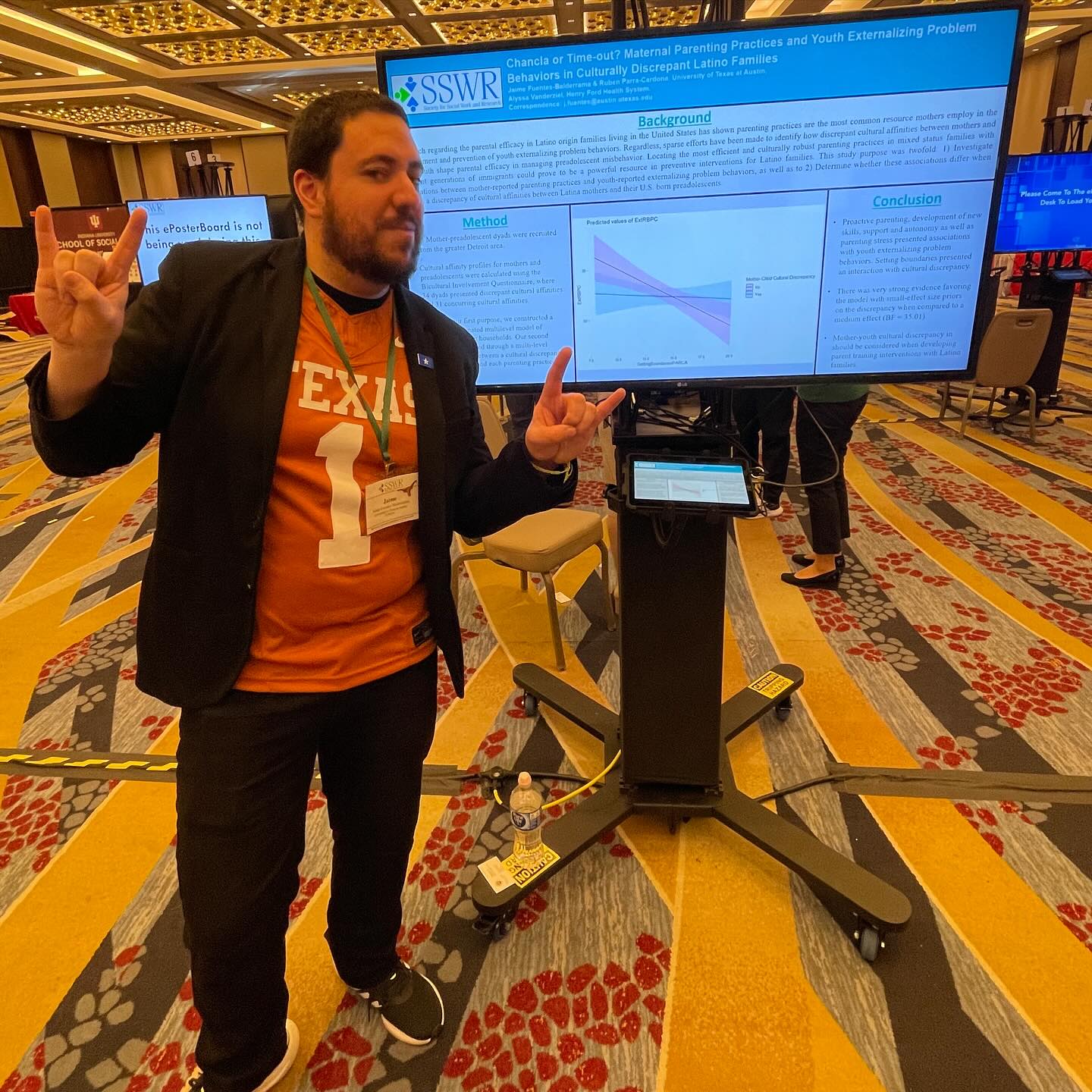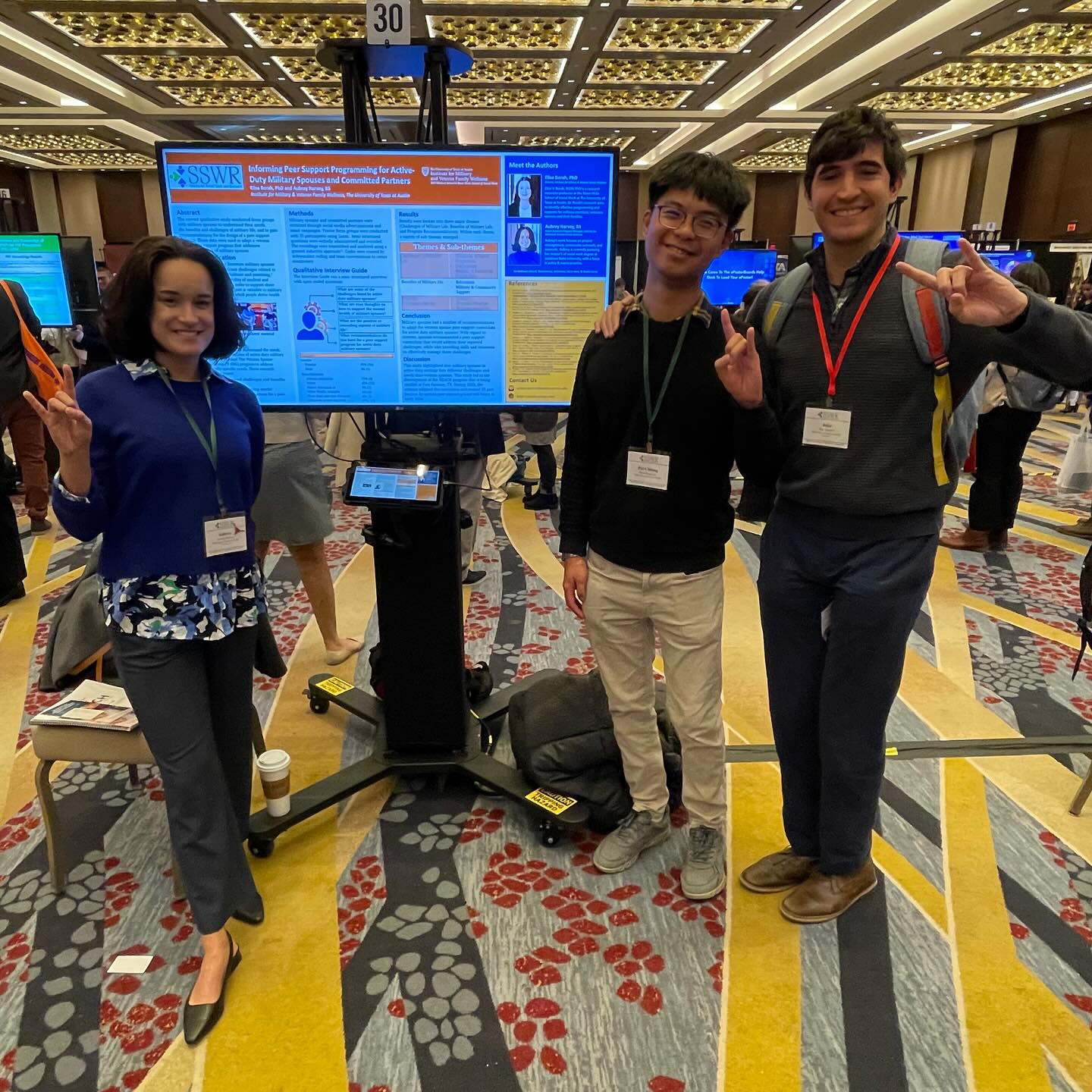Approximately 30 faculty and staff members, researchers, and leaders from the Steve Hicks School of Social Work at the University of Texas at Austin (SHS) convened in Washington D.C. as a part of the 2024 annual meeting for the Society of Social Work and Research (SSWR).
More than a dozen faculty and staff members presented research at the conference, which was themed Recentering & Democratizing Knowledge: The Next 30 Years of Social Work Science. Several doctoral students from SHS provided presentations as well. A highlighted list of research presentations and topics presented by SHS researchers can be found at the end of this article.
SHS was a leading sponsor for the conference, serving as a Bronze Sponsor and exclusive sponsor of the Meet The Scientist luncheon. The event connected 30 early career scholars to mentors in higher education and research (including Dr. Ruben Parra-Cardona and Dr. Fiona Conway), allowing a forum for mentorship and research collaboration.
In addition to the conference, SHS hosted an event to welcome D.C. area alumni, as well as leaders from other top schools of social work.
SHS PRESENTERS AT SSWR
Dr. Barbara Ball
Dr. Elisa Borah
Peer Support and Peer Informed-Programs Serving Veterans and Families
Informing Peer Support Programming for Active Duty Military Spouses and Committed Partners
Dr. Sharon Choi
Understanding a Growing Crisis: Exploration of Factors Associated with Families Experiencing Homelessness in Texas
Dr. Fiona Conway
Meet The Scientist Luncheon (mentor)
Dr. Monica Faulkner
Dr. Cynthia Franklin
Mental Health Treatment & Services
School Social Work and School Based Research SIG
Dr. Jaime Fuentes-Balderrama
Aubrey Harvey
Informing Peer Support Programming for Active Duty Military Spouses and Commited Partners
Katie McCormick (doctoral student)
A Mixed Methods Analysis of Harm Reduction Implementation in Southern HIV Service Organizations
“We Do It Ourselves”: Strengths and Opportunities for Harm Reduction Practice in Texas
Dr. Ruben Parra-Cardona
Meet The Scientist Luncheon (mentor)
Implementing a Large-Scale Program of Parenting Prevention Research in Chile: Co-Design and Co-Adaptation
Dr. Farya Phillips
Molly Platz
Peer Support and Peer Informed-Programs Serving Veterans and Families
Jake Samora (doctoral student)
“We Do It Ourselves”: Strengths and Opportunities for Harm Reduction Practice in Texas
Amy Pei-Lung Yu (doctoral student)
Catherine Wilsnack (doctoral student)
Adolescent and Young Adult Cancer Survivors & Patient Advisory Boards: An Exploratory Study for Multilevel Interpersonal Communication
Dr. Yuanjin Zhou


